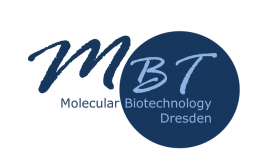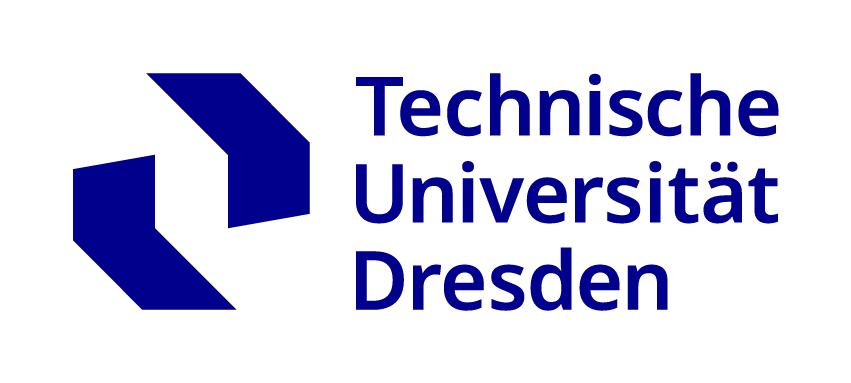Chair of Molecular Biotechnology (MBT) (Professorship)
Parent Units:Technische Universität Dresden (TUD)
German name: "Professur für Molekulare Biotechnologie (MBT)".

Contact
| web: | https://tu-dresden.de/mn/biologie/mikro/mbt | |
| email: | ||
| phone: | +49 351 463-39519 | |
| fax: | +49 351 463-39520 | |
| postal address: | Technische Universität Dresden (TUD), Chair of Molecular Biotechnology (MBT), 01062 Dresden, Germany | |
| office address: | Technische Universität Dresden (TUD), Chair of Molecular Biotechnology (MBT), Zellescher Weg 20b (Neubau Biologie, room 131), 01217 Dresden, Germany | |
| partner: | Technische Universität Dresden | |
Expertise
Vom Biomolekül zur technischen Katalyse
Diversität und Anpassungsfähigkeit organismischer Stoffwechselleistungen bedingen die Ausprägung vielfältiger katalytisch aktiver Biomoleküle. Ihre technologische Nutzung ist vor dem Hintergrund der Entwicklung nachhaltiger Stoffproduktion und der Aktivierung nachwachsender Ressourcen von hoher sozio-ökonomischer Relevanz. Nur ein kleines Spektrum an Biokatalysatoren konnte bislang dieser Nutzung zugeführt werden, da die Anpassung an technische Randbedingungen wie nicht wässrige Medien, Mehrphasigkeit oder Scherbelastung mangelhaft und das Verständnis um die molekularen Zusammenhänge biokatalytischer Aktivität noch immer begrenzt sind.
Forschungsziel
Neue Horizonte der Biokatalyse werden durch gezielte Identifizierung, Manipulation und Präparation technisch relevanter Enzyme grundlegend erschlossen. Basierend auf der Analyse von Aktivität, Selektivität und Stabilität unter Anwendungsbedingungen und der Ermittlung von Ursachen des beobachteten Verhaltens mittels biochemischer, molekularbiologischer und bioinformatischer Techniken werden bioinspirierte Ansätze zur Bereitstellung leistungsstarker technischer Biokatalysatoren und katalytischer Netzwerke entwickelt und im Labormaßstab evaluiert.
- neue Enzyme und Aktivitäten
- molekulare Eigenschaften und Design
- Modularisierung und Anwendung
***********English***********
Metabolic pathways of living organisms are highly diverse and adaptable entailing development of a multitude of catalytic active biomolecules. Their technological use has gained considerable socio-economic importance in context with sustainable production and activation of renewable resources. Nevertheless, only few biocatalysts are in actual technical use to date. Restrictions lie in the special demands of technical systems (e.g. multi-phase systems and non-conventional/non- aqueous media, shear forces), and the still limited molecular understand of biocatalytic activity.
Research target
Identification, manipulation and preparation of technically relevant enzymes essentially unlock new horizons in biocatalysis. Bioinspired approaches for provision of powerful technical biocatalysts and catalytic networks are developed through analysis of activity, selectivity and stability under conditions relevant for application and determination of reasons for the observed behavior with biochemical, molecular biological and bioinformatics methods.
Development of (partly) enzyme driven synthetic processes as alternatives or add-ons to already existing technology can only rarely make use of well-known enzymes. Mostly, an enzyme with the required features is either not available or propriety material. Moreover, reaction intensity, scale and handling traditions set tasks that can hardly be accomplished by a native biomolecule. Research of team MBT is dedicated to the rational development of synthetically applicable biocatalyst preparations covering all steps from identification of natural starter molecules to demonstration of technical applicability. Demands of application are the central lead of development, while current projects focus on either of three fields:
- Novel enzymes & activities
- Molecular features & design
- Modularisation & application
instruments
 View instruments (1)
View instruments (1)
Affiliations
Parent Units
| name | type | actions |
|---|---|---|
| Institute of Microbiology | Institute |
Last Update
Last updated at: 2024-01-31 16:14

